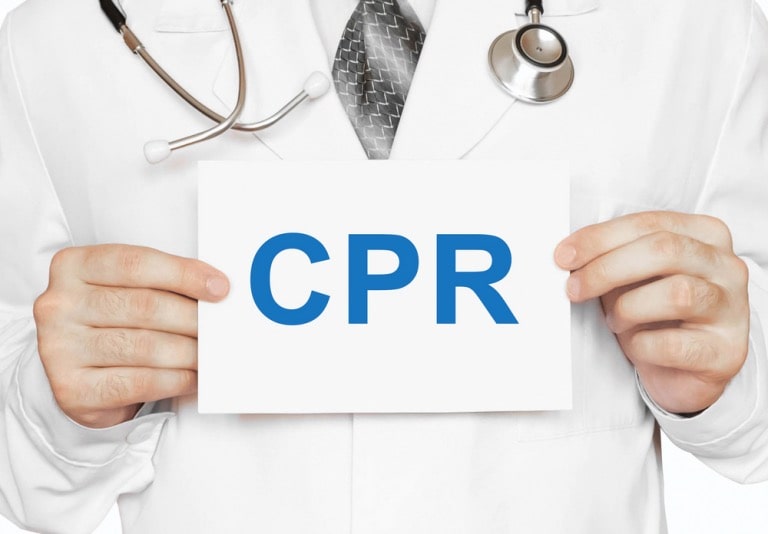Tips for a Successful CPR Card Renewal

CPR stands for Cardiopulmonary Resuscitation, a life-saving skill used for patients experiencing breathing or cardiac issues. CPR certification is not only needed by professional healthcare providers but also by ordinary citizens. CPR card renewal, if not done correctly, can have serious implications. Outdated skills may result in ineffective or harmful interventions during emergencies.
Your certification status may impact your ability to meet legal or job-related requirements, which could affect employment opportunities or professional standing. Once you obtain your CPR certification, it is then crucial to maintain it, as various factors contribute to the expiration of your certification.
For instance, new research and advancements can render older techniques outdated. This makes it necessary to stay updated with the latest practices. In this blog, we will explore the importance of renewing your CPR certification and provide guidance on how to complete the renewal process if your certification has expired.
Understanding the Renewal Process
In the healthcare sector, there are various kinds of CPR certifications available, each aimed at meeting a specific purpose. Some of them are Basic Life Support certifications, Advanced cardiac life support certifications, AED certification, PAL certification, etc. These certifications need renewal, and we will discuss the details below:
-
Expiration Dates and Renewal Periods
For any CPR certification holder, the expiration date and CPR card renewal period are key. In general, CPR certifications typically expire every two years. To maintain certification, individuals usually need to complete a renewal course before their current certification expires. Always check with the certifying organization for specific details.
For instance, if we consider BLS certification, it has a validity of 2 years. BLS renewal courses are available within 30 days before the expiration dates of the certifications. The same goes for the ACLS certifications and PAL certifications. The renewal period varies from one institution to the other. Usually, it is one year.
-
Finding a Certified Training Provider
Finding a certified training provider is crucial for obtaining quality education. A reputable provider offers effective and up-to-date training. To make an informed choice, you need to consider several factors.
- The institution’s reputation and the mode of course delivery
- Check for positive reviews and recognized credentials to ensure that the training meets industry standards.
- Evaluate whether the courses are offered in-person, online, or in a hybrid format to suit your learning preferences and schedule.
Choosing a reputable provider with suitable course delivery options will help you gain effective and up-to-date training.
-
Online vs. In-Person Courses
Based on your preference and by looking at the pros and cons of the various modes of certification, you can make a confirmed decision. Evaluate your learning style, time availability, and the advantages of each mode to select the best option for your certification renewal. This choice will impact how effectively you can keep your skills sharp and stay prepared.
Here’s a comparison between online vs. in-person courses:
| Aspect | Online Courses | In-Person Courses |
| Flexibility | Highly flexible and can be completed anytime, anywhere | Fixed schedule and must attend at set times and location |
| Accessibility | Accessible from anywhere with internet | Requires physical presence at a specific location |
| Learning Style | Self-paced learning and often includes multimedia and interactive elements | Structured learning includes direct interaction with instructors and peers |
| Cost | Often more affordable; fewer overhead costs | May be more expensive due to facility and staffing costs |
| Networking Opportunities | Limited; depends on online forums and interactions | Direct; It is easier to build relationships and network in person |
| Technology Requirements | Requires reliable internet and a computer or device | Minimal technology is needed; mostly physical resources |
| Immediate Feedback | Delayed feedback: Depends on the instructor’s response time | Instant feedback during class sessions |
| Hands-On Practice | May use simulations or virtual labs | Hands-on practice with physical resources |
Preparing for Renewal
Renewal of any certification or CPR card renewal requires the use of various important documents such as IDs, previous certifications, payslips and a few other documents which are needed for the renewal of the certification.
-
Importance of Staying Updated with the Latest Recommendations
It is very important to stay updated about the changing policies regarding CPR courses to remain compliant with policies by getting recertified. Taking recommendations from the courses also helps you choose a certification effectively.
-
Online Resources and Practice Materials
The most important element of any certification is the online resources and the various practice materials that the institution provides. You should properly judge these aspects before joining the course.
The Renewal Course
The content and format of CPR card renewal can vary depending on the certificate provider. However, most courses will offer both written and skill evaluation exams. In the following section, we are going to focus on what you can expect during your CPR recertification:
-
Classroom Instruction
During the renewal course, you might need to attend classes where the instructor will discuss the latest CPR guidelines and emerging techniques. The instructor will also engage you in discussions about the importance of CPR and the role of bystanders in such emergencies.
-
Hands-On Practice
Hands-on practice allows students to apply what they have learned in real life and gain better practical knowledge of the topics.
-
Written Exam
Written exams let the faculty members of the institution evaluate the knowledge of the students. It will also help you to have a better viewpoint about your position compared to your peers.
-
Skills Evaluation
Skill evaluation regarding CPR courses can be done through testing practical and theoretical knowledge. The skill evaluation of an individual gives the institution a clear idea of how effective its curriculum is in teaching the required skills.
Tips for Success
To maximize your success in certification courses, it’s important to actively engage with the material and apply the knowledge practically. Here are some key strategies to help you excel:
-
Active Participation
In any certification or course, individuals understand the curriculum better when they actively participate. Engage with the material, contribute to discussions, and apply what you learn to reinforce your knowledge.
-
Ask Questions
Frequently asking questions about the course material helps students grasp topics more efficiently. It ensures you fully understand the content and clears up any confusion, leading to a more comprehensive learning experience.
-
Practice CPR Regularly
Hands-on practice is essential, especially in healthcare courses. Since this profession involves physically interacting with patients, practicing CPR techniques is key. It helps reinforce skills and builds confidence in applying them effectively when the time comes.
How to Maintain CRP Certification?
Maintaining any certification, whether related to healthcare or another field, requires continuous learning. Therefore, CPR card renewal is important in cardiovascular-related courses.
- Refresher courses
Refresher courses are helpful in providing a summary of the entire curriculum from the previous course. They help reinforce knowledge and keep skills up-to-date. - Online resources
Online resources are crucial for individuals who cannot attend in-person certification courses. They also cover the updated syllabus of CPR certification, making it easier to stay current with the latest guidelines.
Keep Your CPR Card Up-to-Date!
Renewing your CPR card is key to staying current with new guidelines and maintaining your skills. However, simply having the certification isn’t enough; you need to keep learning new techniques and stay updated consistently.
CPR card renewal is a must to ensure you are prepared for emergencies. Enroll in refresher courses to review essential skills and use online resources to stay updated with the latest practices. Regular renewal keeps your skills sharp and helps you respond effectively in emergencies. Don’t wait—take action now to stay ready and make a difference when it matters most.





